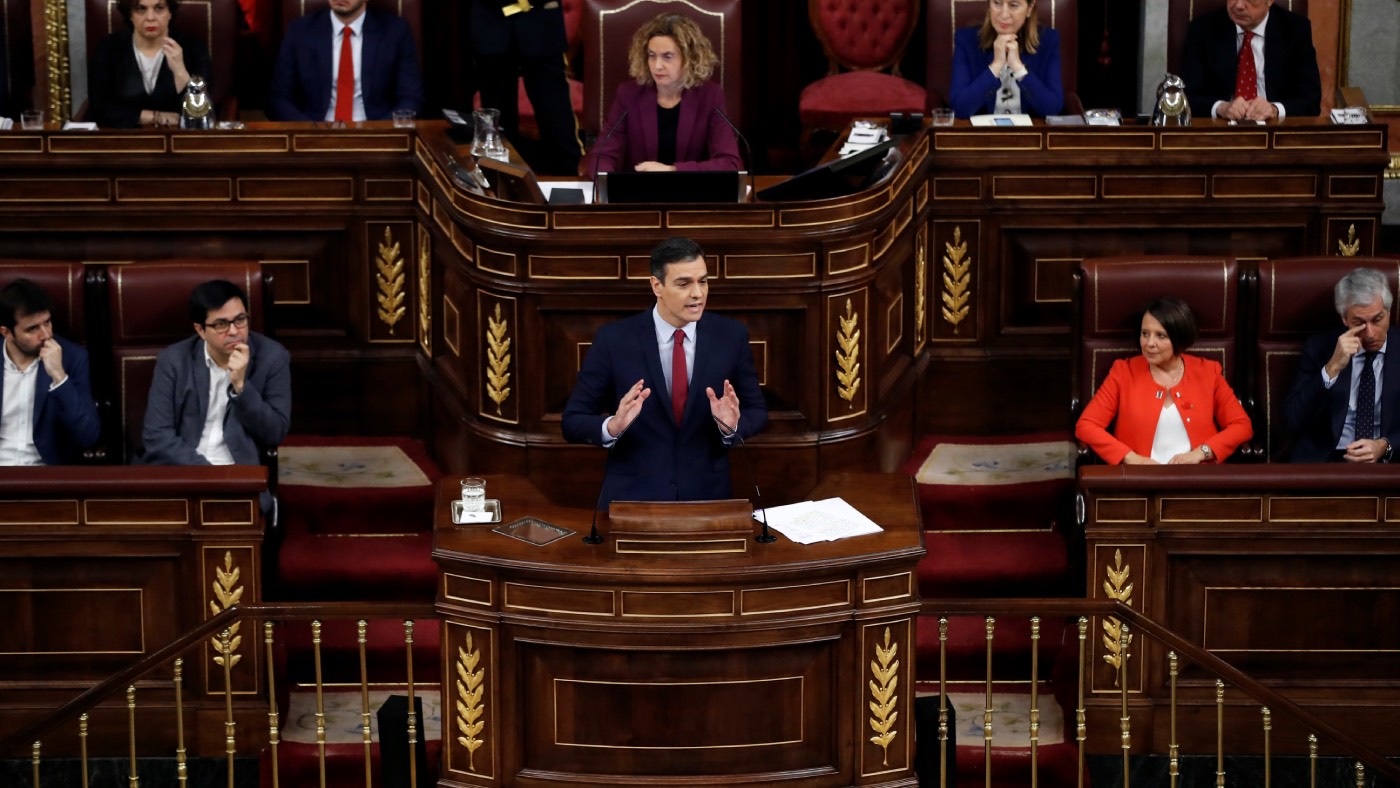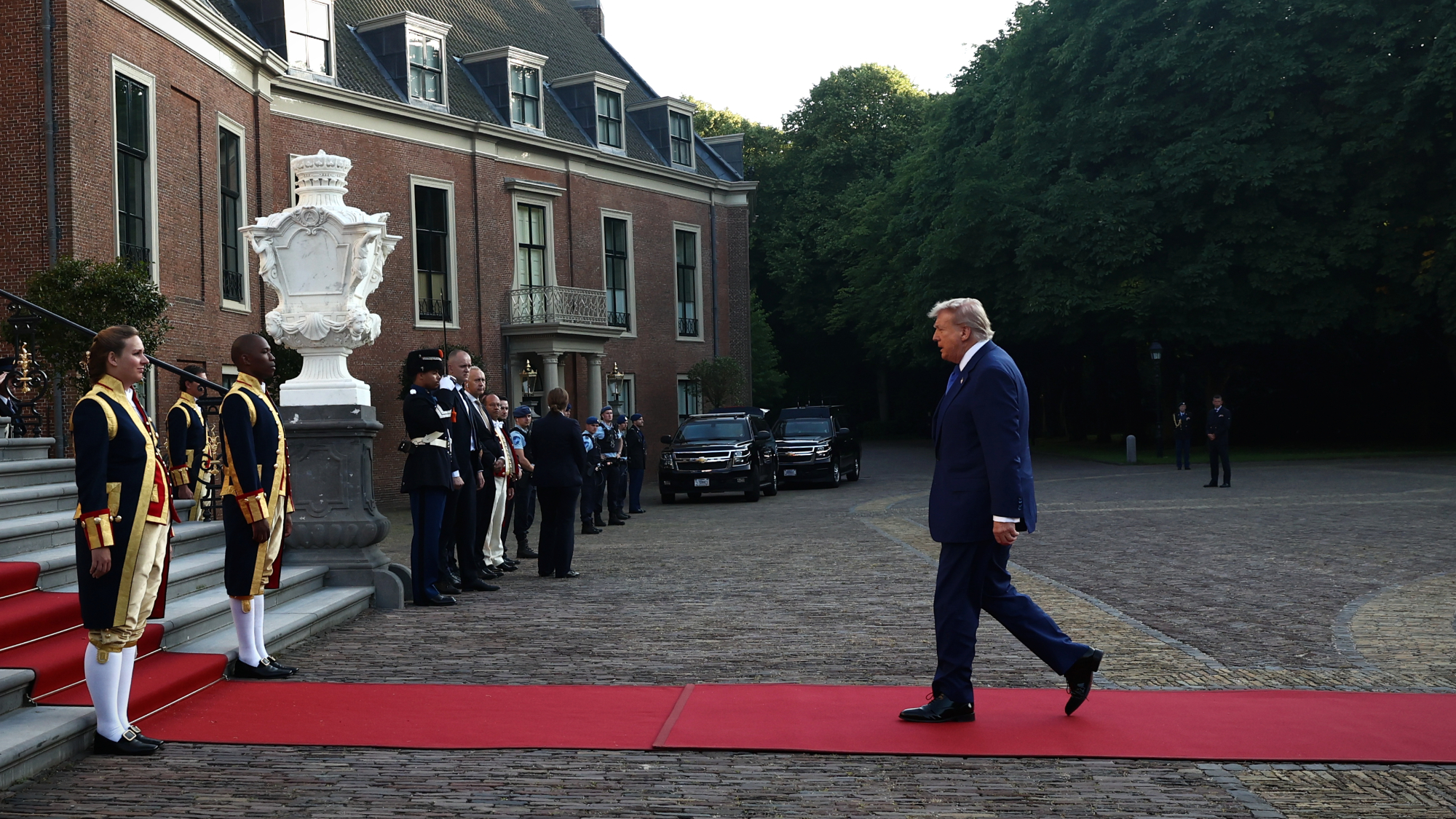Spain led by a coalition for the first time in 80 years
Pedro Sanchez has agreed historic deal with anti-austerity group

A free daily email with the biggest news stories of the day – and the best features from TheWeek.com
You are now subscribed
Your newsletter sign-up was successful
Spain will be led by a coalition government for the first time in 80 years after the acting prime minister narrowly won a confidence vote in parliament, which opened to the door to him governing with an anti-austerity alliance group.
Yesterday’s vote, which Pedro Sanchez won by 167 votes to 165, with 18 abstentions, ends the nine months of political deadlock resulting from two inconclusive general elections last year.
Sanchez will form a minority government after the vote, described as “dramatic” by the BBC, went 167 to 165 in his favour. Abstentions by Catalan and Basque MPs were crucial to the outcome.
The Week
Escape your echo chamber. Get the facts behind the news, plus analysis from multiple perspectives.

Sign up for The Week's Free Newsletters
From our morning news briefing to a weekly Good News Newsletter, get the best of The Week delivered directly to your inbox.
From our morning news briefing to a weekly Good News Newsletter, get the best of The Week delivered directly to your inbox.
The Spanish Socialist Workers’ party, which finished first in both elections last year but short of a majority, has agreed a governing pact with Unidas Podemos.
The main measures agreed between the allies are centred on tax hikes for high-earners and big companies, Reuters says. Others are believed to include a rise in the minimum wage, labour reform, deficit and debt reduction, and the prohibition of prostitution.
Sanchez is expected to be sworn in and appoint his cabinet as early as next Wednesday. However, pundits are already expecting further unrest in the country, predicting that the coalition will threaten Spain’s unity and ultimately fuel rightwing nationalism.
The Times reports that the head of the main opposition centre-right Popular Party, Pablo Casado, called Sanchez a “sociopath” and accused him of forming a “Frankenstein government” made up of “communists” and “separatists” who “want to put an end to Spain”.
A free daily email with the biggest news stories of the day – and the best features from TheWeek.com
Spain, which is the eurozone’s fourth-largest economy has been in political deadlock without a fully functioning government for most of the last 12 months.
Difficult issues which will be immediately facing his government include the question of Catalan independence.
-
 Will increasing tensions with Iran boil over into war?
Will increasing tensions with Iran boil over into war?Today’s Big Question President Donald Trump has recently been threatening the country
-
 Corruption: The spy sheikh and the president
Corruption: The spy sheikh and the presidentFeature Trump is at the center of another scandal
-
 Putin’s shadow war
Putin’s shadow warFeature The Kremlin is waging a campaign of sabotage and subversion against Ukraine’s allies in the West
-
 How corrupt is the UK?
How corrupt is the UK?The Explainer Decline in standards ‘risks becoming a defining feature of our political culture’ as Britain falls to lowest ever score on global index
-
 ‘The West needs people’
‘The West needs people’Instant Opinion Opinion, comment and editorials of the day
-
 The high street: Britain’s next political battleground?
The high street: Britain’s next political battleground?In the Spotlight Mass closure of shops and influx of organised crime are fuelling voter anger, and offer an opening for Reform UK
-
 Is a Reform-Tory pact becoming more likely?
Is a Reform-Tory pact becoming more likely?Today’s Big Question Nigel Farage’s party is ahead in the polls but still falls well short of a Commons majority, while Conservatives are still losing MPs to Reform
-
 Revisionism and division: Franco’s legacy five decades on
Revisionism and division: Franco’s legacy five decades onIn The Spotlight Events to mark 50 years since Franco’s death designed to break young people’s growing fascination with the Spanish dictator
-
 Taking the low road: why the SNP is still standing strong
Taking the low road: why the SNP is still standing strongTalking Point Party is on track for a fifth consecutive victory in May’s Holyrood election, despite controversies and plummeting support
-
 What difference will the 'historic' UK-Germany treaty make?
What difference will the 'historic' UK-Germany treaty make?Today's Big Question Europe's two biggest economies sign first treaty since WWII, underscoring 'triangle alliance' with France amid growing Russian threat and US distance
-
 Trump embraces NATO after budget vow, charm offensive
Trump embraces NATO after budget vow, charm offensiveSpeed Read The president reversed course on his longstanding skepticism of the trans-Atlantic military alliance